Dehghani demanded:
National participation in creating "City of Salam" in line with the development of technology and innovation in the context of Islamic life patterns
Vice President of Science, Technology and Knowledge-Based Economy at the opening ceremony of the Shahid Fakhrizadeh Technology, Innovation and Shared Workspace Building in the Ghom Science and Technology Park invited investors and activists in the field of science and technology to participate in the creation of "City of Salam" in line with the development of technology. and invited innovation in the context of Islamic life patterns in Ghom.
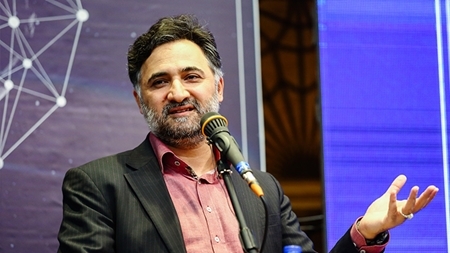
According to the communication and information center in the Vice Presidency of Science, Technology and Knowledge-Based Economy, this building was supported by 120 billion Rials in an infrastructure of 3080 square meters with the presence of Ruhollah Dehghani, the Vice President of Science, Technology and Knowledge-Based Economy, on the eve of Eid Ghadir. It was opened to establish knowledge-based, technological and creative companies.
In the opening ceremony of this building, referring to the capacities and opportunities available in Ghom province to create a model city in accordance with Iranian and Islamic teachings for the development of technology, Dehghani said: As an effective and efficient ecosystem in meeting the needs of the Islamic world, Dehghani said: It should be implemented using the rich capacity of Ghom province.
Emphasizing the necessity of using all capacities for the implementation of City of Salam project, Dehghani said: I will do my best for the formation of City of Salam, and if a pragmatic, non-injected and non-dependent model is defined, the Vice Presidency of Science is also a major actor. The field of knowledge-based economy will play a role in supporting this project.
He stated that the city of Salam provides the necessity of an Islamic infrastructure for life based on Islamic teachings and local technologies, and continued: a suitable place for the realization and innovative activities should be created based on a local and Islamic infrastructure that the City of Salam can answer such a need.
The need to support creative industries
The Vice President of Science, Technology and Knowledge-based Economy, pointing to the need to pay attention to the value-creating and job-creating position of creative industries, said: When 3% of Japan's GDP share, which does not have the rich and historical capacities of a country like Iran, is solely dedicated to creative industries, that means this field has a very high capacity for employment, value creation and streamlining.
Dehghani continued: We consider the field of creative industries separate from handicrafts and cultural heritage because in creative industries, the element of technology is more prominent than works of art and handicrafts.
Referring to the support of the Vice Presidency of Science for the development of creative companies in the form of investment funds, Dehghani said: 500 billion tomans will be invested in creative funds to accelerate the development of creative industries with the help of technology, innovation and the presence of the private sector.
He considered the role of creative industries in the popularization of the knowledge-based economy as bold and key and added: the field that can play a real and significant role in popularizing the economy is the creative field because it has a close and direct relationship with the life and context of the society. Based on this, we are seriously on the agenda to support the development of creative industries.
The Vice President of Science, Technology and Knowledge-Based Economy considered the support of technologies based on needs and in an intelligent and targeted manner as a strategic necessity of the country and among the priorities of this vice presidency and said: the model of throwing money and bulk support is not effective and solves the country's problems. Because in this model, a large number of investments are made in the hope that one or more plans will be successful, which may not be successful. In our country, considering the limited resources, the approach of drip irrigation should be adopted instead of capital flooding policy.
Dehghani emphasized: Smart investments should be made on the advantages of each province and its growing capacities.
The vice president of science, technology and knowledge-based economy pointed out the capacities of the knowledge-based production leap law for investment and targeted support and added: if the capacities of this progressive law are optimally used, it can bring rich blessings and benefits to the country for many years.
The head of the National Elites Foundation emphasized that the universities should implement the policy and approach of removing the walls and opening the doors to the activists of the technology and innovation ecosystem, and said: a laboratory device that must be active 24 hours a day to be efficient and affordable to buy Sometimes it gets dirty in the laboratories of some universities, which is a betrayal of the field of technology and knowledge-based economy and a waste of the country's funds.
Dehghani emphasized: We must practice activities in synergistic and collective models, and Ghom, with its rich and spiritual capacity that has been emanated from the existence of Hazrat Masoumeh, peace be upon her, can be the basis for effective and transformative collective activities.
He stated that the support of thematic innovative projects should take place in the heart of the corporate innovation centers based on a specific issue, and added: the efficient model is that a company that has achieved sufficient success and maturity and recognized the market is an innovation center and pursues its real needs by supporting teams responding to these needs and in the heart of this corporate innovation center.
The necessity of creating a knowledge-based networking super platform
Referring to the creation of a platform for interaction and introduction of support services to knowledge-based companies in the form of a hyper-platform, the vice president of science, technology and knowledge-based economy said: More than 90% of knowledge-based companies have not received any support from the vice-presidency of science, technology and knowledge-based economy. One of the reasons for this is the lack of awareness and recognition of companies and activists regarding these supports and facilities.
Dehghani emphasized: We need a knowledge-based metaverse or super-platform where knowledge-based people can live in the field of knowledge-based information and communication. On the platform of this hyper-platform, all services and facilities are clearly introduced and they can access all facilities and each other under one network.
He added: A comprehensive and extensive system has been defined with the aim of networking wide access to these facilities and will be introduced in the near future. This platform and its space will help to solve a significant part of the chronic problems and problems of knowledge bases.
Dehghani expressed his hope that by creating the city of Salam, which is an intelligent infrastructure for the valuable activities and good life of the people, it will provide the basis for the happiness of Hazrat Sahib al-Zaman (A.S.) and the Supreme Leader of the Islamic Revolution.
The city of Salam and the realization of innovative life based on Islamic teachings
It should be noted that the ecosystem of innovation and unraveling of the Islamic world with the title of City of Salam is supposed to be a technological, innovative and creative infrastructure for the development of technologies and innovation and life on the basis of an infrastructure based on Islamic patterns and standards.
It is expected that if the support is realized, the first phase of this program will be put into operation in the third year, and at the same time, the second phase of City of Salam will also be completed.
City of Salam provides a platform to increase the justification rate of technological companies in exploiting entrepreneurial and cultural spaces and the justification rate of investment.
Among the features of this project, we can mention the proximity to the university ecosystem and the capacity of 1,200 hectares of land, the ability to develop in six executive phases, close distance to the city center, access to information and communication technology infrastructures, and proximity to universities.



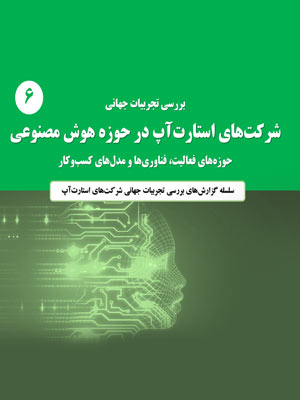


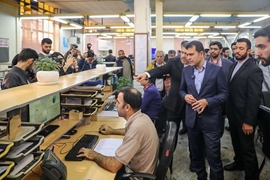
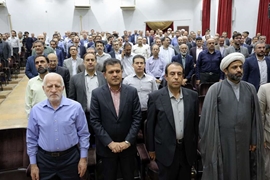
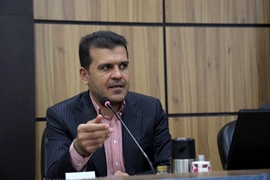
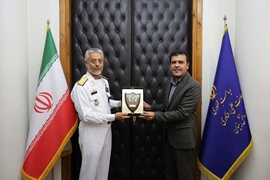

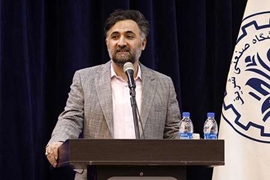
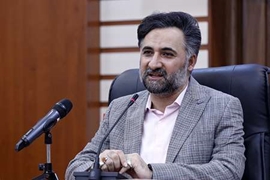
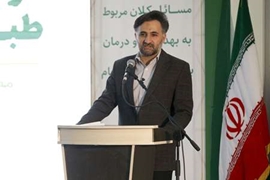
comment